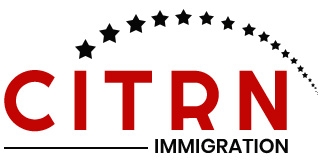
How to sponsor a refugee?
How to sponsor a refugee?
How to Sponsor a Refugee: A Step-by-Step Guide for Canadians
This can be a very powerful means of offering the needed refuge for safety, mostly to start a new life in Canada. The Canadian refugee sponsorship program allows individuals and groups to sponsor refugees and help them settle and integrate into Canadian society. If you are interested in becoming a sponsor, this guide provides an overview of important steps, eligibility criteria, and sponsoring responsibilities within the process.
Understanding Refugee Sponsorship in Canada
Canada has different types of sponsorship programs for refugees under the department of **Immigration, Refugees, and Citizenship Canada (IRCC)**. These programs resettle people who are considered vulnerable and at risk, where fleeing from conflict, persecution, or other dangers to life are happening in their home country. The three primary kinds of sponsorships provided include:
- Private Sponsorship of Refugees (PSR) Program
- Government-Assisted Refugees (GAR) Program
- Blended Visa Office-Referred (BVOR) Program
The Private Sponsorship of Refugees (PSR) program empowers individuals, organizations, and groups of people to sponsor refugees privately. You, as a sponsor, provide financial and emotional support to the refugee for a fixed period - usually one year or until the refugee becomes self-sufficient.
Step-by-Step Guide to Sponsoring a Refugee
Ready to make a difference by sponsoring a refugee? Here's a detailed guide to help you through the process.
Step 1: Choose a Sponsorship Pathway
Determine whether you will be sponsoring a refugee through one of the following:
- Group of Five : Five or more Canadian citizens or permanent residents who agree to sponsor a refugee.
- Community Sponsors : Organizations, associations, or corporations who can sponsor a refugee provided they meet financial and resettlement support requirements.
- Sponsorship Agreement Holders (SAHs): Those organizations that are authorized by the Government of Canada to sponsor refugees. The SAHs may sponsor alone or in co-sponsorship with individuals.
Each of these avenues has some cost-sharing and coordination that must be carried out to address the needs of the refugee for the period of the sponsorship.
Step 2: Identify a Refugee to Sponsor
In most instances, the sponsors can either:
- Name a concrete refugee whom they want to sponsor-a family member or somebody they know.
- Collaborate with Sponsorship Agreement Holders (SAHs) in order to sponsor refugees who are named by the UNHCR or a Canadian visa office abroad.
If you don't have a specific person in mind, you can apply under the Blended Visa Office-Referred (BVOR), where the visa office refers a refugee and the sponsoring group shares financial responsibilities with the Canadian government.
Step 3: Meet the Financial Requirements
Sponsors will need to be able to provide for the financial needs of the refugee(s) for a period of up to one year or until they are able to become self-sufficient. This includes:
- Housing costs-rent, utilities
- Basic requirements-food, clothing, transportation
- Personal costs-health not covered under public insurance, language training, etc.
The real cost of sponsoring a refugee varies, given that this is determined by the size of the family. This can be estimated at approximately **$16,500** to sponsor one person and over $32,000 to sponsor a family of four. A person submitting the application will have to show proof that this financial obligation can be met before the sponsorship is approved.
Step 4: Submit the Sponsorship Application
Once you have chosen which pathway of sponsorship to pursue and have determined you can meet the financial obligations, you will move forward with your application to IRCC. The application package for sponsorship will consist of:
- Sponsorship Undertaking Form (IMM 5373) : This form is a legal agreement between you and the Government of Canada which outlines all the necessary information of your responsibilities as a sponsor.
- Settlement Plan : An overall plan indicating how you will help resettle the refugee(s) into the Canadian community: house hunting, job finding, language training, and community integration.
All forms must be duly completed and forwarded to avoid delaying their processing. The time for the processes is variable depending on the location of the refugee and the complexity of his or her case.
Step 5: Preparing for the Arrival of the Refugee
When your sponsorship application is accepted, the refugee will need to undergo **security, medical, and criminal record checks** in their country of residence before coming to Canada. The processing usually takes several months, in which you will be expected to prepare for the refugee's arrival by:
- Finding a suitable accommodation with consideration of all the needs of the refugee.
- Arranging for basic needs , such as medical, banking, and transportation.
- Cultural Preparation, such as locating language classes, or any support groups to help the refugee adapt to Canadian life.
Step 6: Caring for and Resettling the Refugee
Once the refugee has arrived, your work as a sponsor really begins. You will be directly providing financial and/or emotional support for the next 12 months. Key things you will be doing include:
- Daily needs : Grocery, clothes, and basic household requirements.
- Paper work : Assist them in getting health cards, social insurance numbers, and ID.
- Getting access to services : Healthcare access, language classes, and job/ education opportunities.
Social and emotional support are most needed during the initial period of resettling as refugees are faced with a new environment, language, and culture that they must adapt to.
Benefits of Sponsoring a Refugee
Sponsoring a refugee is an experience to be had in one's life, both for the sponsor and the refugee. Of the key benefits that accrue to the process, among them are:
- Creating Change : You provide a vulnerable individual or family with safety, security, and a new beginning in open-armed Canada.
- Empowering Communities : Refugees bring unique skills, experiences, and perspectives to communities, continuing to make significant cultural and economic contributions to Canada.
- Ties That Bind : In the context of private sponsorship for a relative or family member, it reunites and brings your loved ones out of harm's way.
- Personal Fulfillment : To many sponsors, emotional reward is enough to motivate a person to help someone resettle into an improved life.
Sponsoring a refugee is one of the most compassionate and impactful ways you can be involved in global humanitarian efforts. Giving the opportunity for a new life in Canada will be more than an opportunity given to an individual; it will enrich your community with another unique experience.
If you are interested in sponsoring a refugee, it is by contacting **Immigration, Refugees and Citizenship Canada (IRCC)** or a **Sponsorship Agreement Holder (SAH)** that you will learn about how you could make the difference.


Looking for safety and a fresh start in Canada?
Explore refugee sponsorship programs and begin your journey to a new life.
Contact us today for support and guidance.

